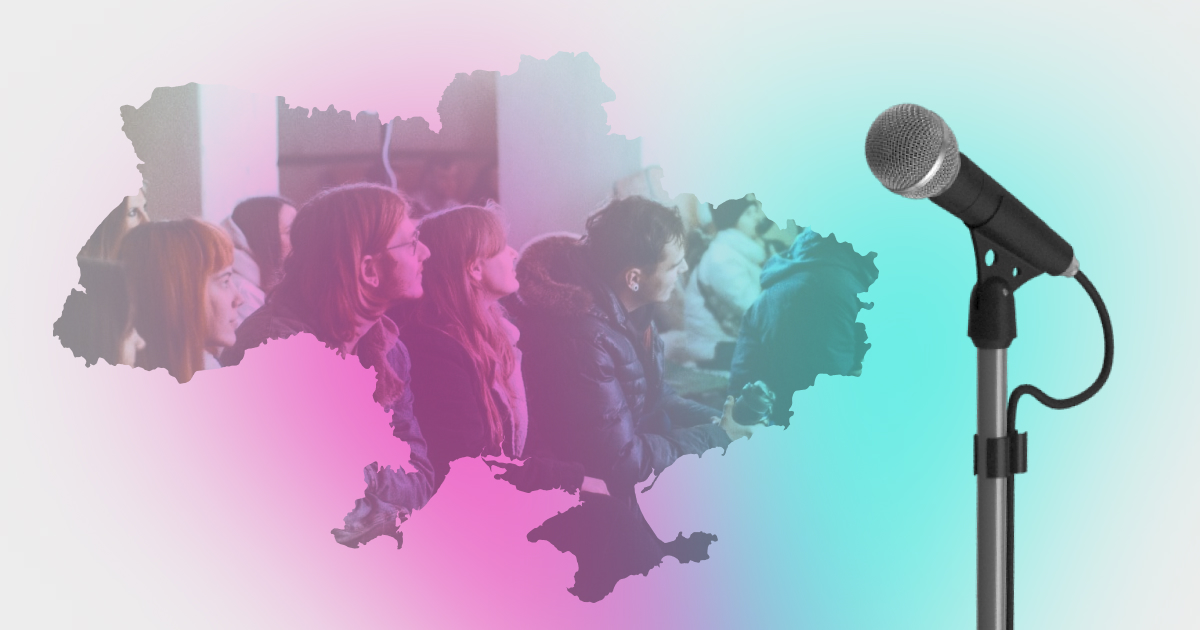The place and role of comedy during wars

After February 24, everyone is trying to be useful at their front. One of the tools of the information front is comedy. Ukrainians turn Russian information warfare into memes. It helps to survive psychologically.
"SVIDOMI" talks about humor, its manifestations during World War II and the Russian-Ukrainian wars.
Comedy during World War II
People of different generations satirize dictators, aggressor countries and portray victory over them. This technique spread during World War II, as it humiliated the enemy and lifted the spirit.
In 1940, Comedian Charlie Chaplin made the satirical anti-Hitler film The Great Dictator a phrase that Zelenskyy quoted during his speech at the Cannes Film Festival: “The hate of men will pass, and dictators die, and the power they took from the people will return to the people. And so long as men die, liberty will never perish.”
In 1942, the American animation studio Warner Brothers aired the short cartoon "Ducktators" (The title is a pun on the word dictator). The main characters represented the images of Hitler, Mussolini and Tojo.
Another manifestation of humor were caricatures. Satirical draughtsmen drew cartoons depicting the signing of the Molotov-Ribbentrop Pact in 1939. In one of the cartoons, the illustrators portrayed "the marriage of the leaders of the two aggressor states — Hitler and Stalin" and signed "I wonder how long this honeymoon will last?"
Humor in Ukraine
Until February 24, only some comedians mentioned the war during their performances, but now it is their main topic. The actor of the “Inarodnyi” (a pun on national) Theater of the Absurd “Vorobushek” (Sparrow) "Oleksandr Serdiuk explains that it is important that it should be a real civil manifestation, but not a way to adjust to reality. The theme of the war in the present standups is not a temporary thing that has become a mainstream, but the reality we live in.
People perceive humor as a way of distraction, however, according to Serdiuk, the war should not be allowed to go into oblivion, as it did after 2015, when the war became a backdrop.
Humor should not distract, but plunge into reality with comedic and sarcastic tools. Encourage, but not distance, society.
“We are distracted all our lives. Now there is a war on, it has lasted for eight years, and we have been distracted by the fact that the Russian military is trying to take Ukrainian territories. I myself see that I have been distracted for all eight years: I did not volunteer, I did not find out what was happening to the military, and my work was aimed at distraction," Serdiuk says.
With the onset of a full-scale war, the comedy industry quickly switched. Among comedians, standup in the bomb depot became popular, where they joke about the propaganda of the Russian Federation and world's “second” largest army.
Humor from and for foreigners
On April 28, stand-up comedian Anton Tymoshenko published the first English-language performance focused on foreign audience, calling for support of Ukraine. The video has already been shared by Irish stand-up comedian Dara O'Brien.
Polish author Andrzej Rysuje creates comics in support of Ukraine, in which he ridicules Russians who steal Ukrainian household appliances.
On May 25, the French satirical magazine Charlie Hebdo dedicated an issue to Ukraine, for which it gathered the works of the Association of Cartoonists of Odesa. All funds from the sales of the weekly were planned to be transferred to the Armed Forces of Ukraine and Odesa territorial defense forces.
It is important that the fervor of comedy space does not end after the war.
"We can all disappear as a people, a country, a culture, and now we can't go soft and stop," Serdiuk emphasizes. Even if it's about jokes.


